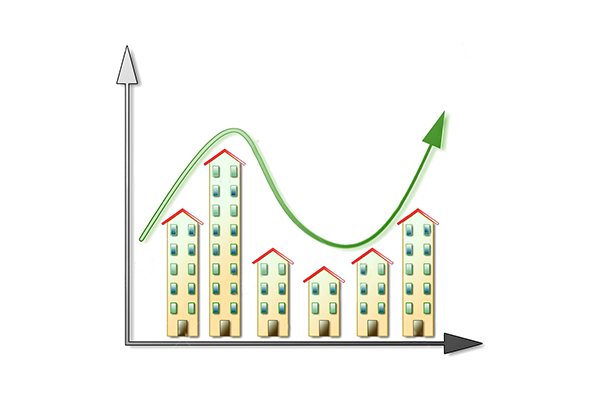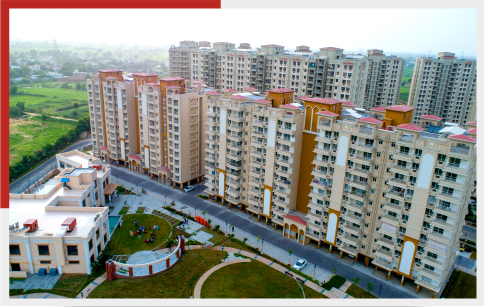
Real Estate Market – one of the ever-growing markets on the face of the earth, has now slowed down a bit. With changing taxes and demonetization over the past few years, this market has seen major ups and downs but has significantly recovered and restrengthened itself a lot. Sharing with you, some of the key factors that affect pricing in the real estate market are:
1. Location: It has always been a major factor in deciding prices in real-estate. It is a simple equation, prices will be increased for a property in a well-developed location with the proximity of markets and other amenities, on the other hand, if the location of the locality is undergoing development, the property prices will be slightly on the decreased side. Properties developed on freehold plots will always cost more than those developed on leasehold plots. Properties near SEZs or IT zones, generally cost more than those near agricultural areas due to obvious reasons.
2. Amenities: Any property with all the modern amenities like clubhouse, swimming pools, power backup, 24×7 water supply, gym, and whatnots will have greater pricing as compared to the projects with the absence of some or all of these.
3. Infrastructure: It is one of the most important and governing factors of prices in the real estate market. A project that is well connected with Airports, Railway Stations, Bus Terminals, is likely to have higher pricing. Connectivity is something that home buyers always look upon, a well-connected project will always have higher pricing as compared to a project that isn’t.

4. Commercial Development: This refers to the development of commercial space in the vicinity of the housing project/property. Development of Special Economic Zones, Office Spaces, IT hubs, Shopping Malls, Complexes, Miniplexes/Multiplexes, etc. will always lead to an acceleration in pricing.
5. Land Availability: A housing project in a closed space, i.e. in or near a market location, or any other populated locality will have a higher value as compared to those in unpopulated localities or developing areas. People always tend to live in an already established locality, hence land availability is something that deeply affects the pricing in real estate.
6. Demand and Supply: For any given area, demand in the real estate will always be inversely proportional to supply. If there is a decrease in supply, prices will obviously go up for the existing projects. With an overall increase in the number of unsold housing projects, prices will go down for each one of them. If there is a growth in the population of a certain locality, that locality slowly becomes popular and it further propels the prices of real estate in and around that locality.
7. Structural Aspects: Numerous factors of building a house come into this. The pricing of labour at the time of building a project, the quality of materials used in a project, the quality of the architecture of a project, the life cycle of a project, proper and working lifts, emergency exits, and other structural aspects of the project play a major role in deciding the overall pricing of a project. Better the structural aspects, higher the pricing of the project
8. Customisation: This is something that is in addition to basic structural aspects of a project. Customisation differs from individual to individual. Many people are more than happy with the basic design of their house, however many want some extra functionalities, like a false ceiling, a verandah, etc. for these extra functionalities, an extra cost will obviously be charged from the investors/buyers.
9. Comparable Properties: This refers to the other properties in the neighbourhood of your project/property. Often called the ‘comps’, these properties are very comparable and tend to shape the prices of the other projects in the neighbourhood. If one house has been sold at a particular price, then builders often lure customers by selling properties comparable to it at a lower price. This decreases the overall pricing of the projects in and around the locality.

10. Economic Conditions: Real estate and the economy generally go hand in hand. Any consumer’s ability to invest in housing projects is directly linked with GDP, unemployment and income growth. In a flourishing economy, GDP will be increased, less unemployment and higher income growth will lead to a decrease in the prices as more and more people will invest in the real estate. However, all of these changes with a sluggish economy. Income growth is very less and unemployment will be more, leading to a decrease in real estate purchase, hence, decreased prices.
11. Interest Rates: The interest rate on housing mortgages is a major deciding factor for real estate prices. High-interest rates lead to a decrease in demand for a property as most of the house-buyers depend on housing loans and are not willing to pay extra over high-interest rates. All of this changes when the interest-rates undergo a decrease, demand for properties increases, hence resulting in decreased prices.
12. Investors: When the prices of real estate are at a low, investors tend to purchase more and more properties only to lease them out or resell later at a profit. This often leads to a large number of unsold properties at once. At a certain time, investors want to liquidate their holding for a profit but if they mistime it, it leads to a sudden increase in new properties hitting the market at once, which further slows down the market and more people become interested in taking properties on lease rather than buying them.
13. Growing Investment Options: At a time, the real estate industry was at a bloom, with high Return of Investment (ROI) and was at every investor’s list but with the decrease in ROI and slowing down of economic growth, many investors who had been a keen investor in the real estate, began exploring other options with a higher ROI. Many alternative investment options began to appear on the map of investments, startups, were one of them.
One more & quite significant reason for price fluctuation is real estate are the various Government policies. The Real Estate industry has been an ever-growing industry, but it has seen a recent fall in prices and demand. Increase in population has, no doubt, kept the demand alive, but the sluggish economy and new taxes are a difficulty that this industry is facing till date.
Join 1000+ of fellow readers. Get expert real estate knowledge straight to your inbox absolutely free. Just enter your email address below.